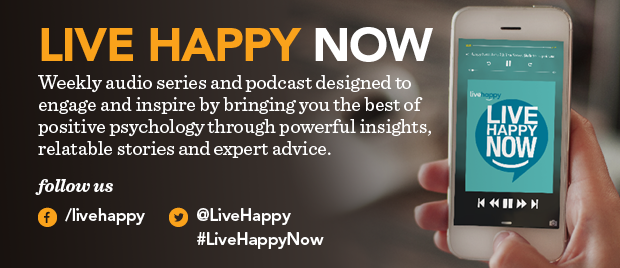Start a Journal, Change Your Life
A journal is far more than a blank book—it’s more of a blank canvas on which parts of your life can unfold. A journal can be a safe, non-judgmental place to exhale and explore your thoughts, emotions and experiences. Reflecting upon your life and writing down your thoughts can be a cathartic process that increases self-awareness, alleviates stress and leads to personal growth.If the prospect of keeping a journal sounds overwhelming (who has the time?) you might be surprised to learn that there are many different kinds of journals to keep, and some require very little time. Find the type of journal that resonates most with you.1.Gratitude or Positivity JournalWrite down three things you are grateful for about your day (tiny things count like your cup of coffee, or a great phone call with a friend) or three best moments of your day, and after just a few weeks you will experience a definite boost in your well-being. The effects have been so well documented by happiness researchers from Martin Seligman to Shawn Achor that we may soon see gratitude journals prescribed by our doctors like aspirin for the mood.Read More: 8 Easy Practices to Enhance Gratitude2.Morning Pages JournalJulia Cameron, author of The Artist’s Way, recommends keeping a morning pages journal—three pages of longhand stream of consciousness writing. There are no rules, you just wake up and write. According to Julia, morning pages are about “anything and everything that crosses your mind, and they are for your eyes only.” Morning pages “provoke, clarify, comfort, cajole, prioritize and synchronize the day at hand.” The concept of keeping morning pages, and the way in which these pages spark and provoke a current of creativity, are at the heart of The Artist’s Way, and a major part of what makes the book so special.3.Dream JournalCapture the stories your mind creates at night by keeping a dream journal at your bedside. Collect the details of your dream right after you wake up as dreams fade fast from our consciousness. You may not be able to decipher your dream precisely, but you can take notice of patterns or reoccurring worries, which you may be able to address later in your waking life.4.Idea JournalDo your ideas come to you in the middle of the night, while you’re on the subway, or anywhere that’s inconvenient and you don’t have a pen. Make sure you’re always ready to write down that million-dollar idea for a screenplay, a business … Grab your idea journal as soon as brilliance hits you and get your idea in ink. Capture thoughts for your home decor, bucket list, first book, or entrepreneurial pursuit. No more scribbles on a napkin for you.Click here to see Live Happy's beautiful Sunshine Journal.5.One-Sentence JournalHappiness expert Gretchen Rubin found the idea of keeping a journal daunting, so she came up with the idea of the one-sentence journal to record memories and appreciate her life more. She credits her one-sentence journal for keeping happy memories vivid and happy memories crisp in order to pass them along to her children.6.Baby JournalYes, you are sleep deprived and super-busy in the first year of your baby’s life, but when you get some sleep in a few years, you will be so glad that you took the time to capture the milestones, like the precious first baby giggle, of your infant’s first year. Photos are a major bonus here.7.Personal Development/Self-improvement JournalIf you love to read books about how to make your life better, consider keeping a personal development journal where you capture the best bits of insight and advice. Write down favorite quotes and gems of wisdom from books, speeches and websites. A personal development journal can be like a study-guide for a better life. Use it to write down and track your personal goals, too.8.Travel JournalEver go on a cruise and you stop at so many different tropical places that you can’t recall them a year later? Keep a travel journal to document the places you go. Write down favorite travel memories, countries, cities and towns. Take a glue stick with you and paste in little mementoes like tickets and menus, if you wish. When you reread your travel journey you can relive special family trips and savor your memories.Read More: What's the connection between travel and happiness?9. Visual JournalMaybe you process the world through pictures rather than words. Some of the most beautiful and meaningful journals are visual—filled with doodles, sketches, portraits of people, often alongside names, places and quotes. A visual journal could also be a travel or baby journal. If you are more an artist than a writer, by all means, record your moments using this amazing strength.10.Everything JournalIf you are more of a creative free-spirit, keeping a journal where you do some or all of the above might appeal to you. Don’t restrict yourself with the type of journal you keep, just doodle, capture quotes, write down memories or go for stream of consciousness writing. You can write every day or once a month.The simple practice of writing forces you to slow down from the frenetic pace of life and connect with who you are and what you’re up to. Reap the benefits of keeping a journal by staying attuned to your life.Read More: 31 Days of WellnessSandra Bienkowski worked as the national columns editor forSuccess magazine for three years, and is widely published in print and on the web. See more about Sandra atThe Media Concierge.
Read More








